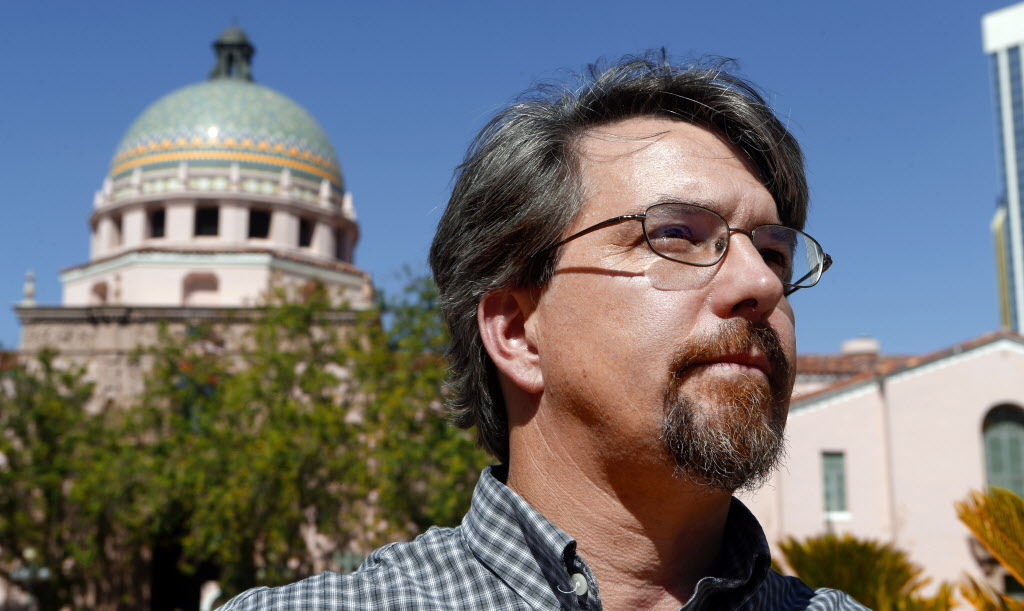If you want to know why all seven Pima County bond issues apparently lost Tuesday, one of the reasons is contained in that word. “Apparently.”
As of Wednesday afternoon, county elections officials had still not counted around 20,000 ballots, meaning two of the bond issues could theoretically still pass. Elections director Brad Nelson said the county expects to be done counting on Friday — three days after the election.
Can a county that blames a different malfunction every election for its ballot-counting delays be trusted with $800 million in bond money? On Tuesday (and Wednesday and Thursday and so on as ballots are counted) the voters said emphatically, “no.”
“It must be the tenor of the times that this is going on,” former Pima County Supervisor Mike Boyd told me Wednesday. “There is a really large mistrust of government.”
As a supervisor, Boyd, a Republican, supported and helped pass one of the biggest previous county bond issues, in 1997. He supported some of this year’s issues but not all and was shocked especially by the failure of the flood-control project, a small $17 million ballot issue that is undeniably part of government’s essential functions.
“That’s an annoying one,” Boyd said. “If you can’t trust flood-control engineers, if you think saving a dollar a month on property taxes is worth it, it’s really troublesome to me.”
Supervisor Ally Miller and other leaders of the “no” effort helped drive home the idea that the county could not be trusted with the bond money. But trust was only one of the factors that drove the bond issues to defeat.
GRAB-BAG BONDS
For years, Pima County’s bond advisory committee has worked hard and thanklessly, evaluating proposals for projects that might belong on the next ballot issue. The 25-member committee rejected many proposals before arriving at the 99-project list the supervisors approved for the ballot.
Despite their winnowing, there was a grab-bag feel to some ballot issues. Worst was the tourism promotion issue, which included $9.35 million for an Arizona-Sonora Desert Museum expansion, $8 million for a Reid Park Zoo expansion, and $4 million for a new Pima Air and Space Museum Cold War exhibit, among other projects.
Voters dismissed that list of projects by a 2-to-1 margin, the worst margin of any of the seven issues.
Most of the ballot issues contained projects that seemed essential and those that seemed like nice ideas. The strategy on the county’s part seemed to be to package both in each ballot issue. But that may have backfired in the sense that the nonessential items in each ballot issue gave voters a reason to vote no on every one.
Considering these results, it looks like a good time to rethink Pima County’s approach to bonding. A focus on essential needs instead of hopes and dreams would be more likely to win voter support.
ECONOMIC UNDERTOW
On the other hand, a key problem might have been the timing of the bonds as much as the content. Supervisor Ramón Váladez was worried about the area’s sluggish economy even when he approved putting the bonds on the ballot.
The problem was “the economy and economic uncertainty,” he said. “It’s not macroscopic, it’s microscopic.”
He’s right in that this remains a period when Tucson-area residents feel insecure in their jobs and unsure that brighter times are ahead.
And yet, in Oro Valley and Tucson, voters opted for the status quo even when given solid alternative candidates on their respective councils.
COUNCIL CONTRASTS
On that note, it may look contradictory how voters acted in Tucson and Pima County elections. How could the voters who re-elected three Democratic incumbents to Tucson’s City Council also vote against the seven bond issues?
The answer, I suspect, is that they didn’t. Those who voted for the Democratic incumbents could be numerous enough to win city elections but still not add up to enough voters to win the bond issues. Final counts will likely show landslides against the bond issues outside city limits.
And that brings up an idea that Mayor Jonathan Rothschild and the council will clearly consider soon: putting more of their own bond issues to voters.
This is the way most of the cities in Maricopa County get projects financed: They ask voters in their own individual jurisdictions to approve them. For Tucson at least, the success of the road bond, approved by city voters in 2012, should be compelling.
Take Oro Valley as another example: Maybe it should be the entity, rather than the county and its taxpayers, to pay for a $15 million “business accelerator” that was part of one of the losing bond packages.
ESSENTIALS LOST
While I advocated for people to pick and choose among the bond ballot issues and could appreciate arguments for and against, I was dismayed at two results. The $200 million roads package and $17 million in flood-control work were examples of essential government services that, in my mind, should have been approved.
What are we to do now about roads? I hope those who voted no or led the opposition campaign have some practical ideas.
And as to the flood control work, those decisions look like reflexive “no” votes without a view toward consequences.
George Cunningham, a longtime Democratic politician in Tucson, told me Tuesday he suspects general anti-government sentiment was behind some of the votes.
“There has been a concerted effort, not only locally but nationally, to demonize taxes and demonize government. The demonization of those two essentials for a society and an economy results in folks basically having very little tolerance for any increases in taxes and any changes in what government may or may not do.”
To me, that’s going too far.
You can quibble about whether taxpayers should be paying for upgrading tourist attractions, but flood control and roads are some of the fundamentals that government exists to address.





